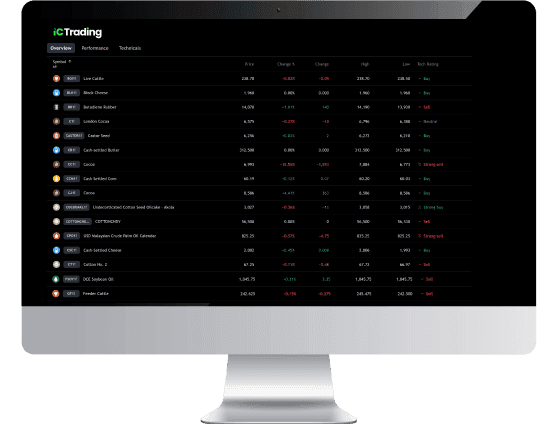Trade global Bonds
Our Bond CFDs are based on fixed-income debt securities that provide regular coupon payments. With flexible lot sizing, you can trade bond prices by taking long or short positions, allowing you to capitalise on market movements. Explore opportunities in fixed-income investments with our customisable bond CFD offerings.
9
Bonds
0
Commission
1:200
Leverage
40ms
Execution speed
How does Bonds trading work?
Bonds are a key component of the fixed income asset class, providing regular, fixed coupon payments to bondholders. They can be traded in secondary markets and are often issued by governments to fund public projects like infrastructure. Traders typically buy and sell bonds based on anticipated future interest rate changes. When a central bank raises interest rates, bond prices usually fall while yields rise, reflecting the inverse relationship between interest rates and bond values.
Bonds trading hours vary by location and government regulations. For a complete list of our trading hours, please visit our Trading Hours page.

Bonds trading example
The gross profit on your trade is calculated as follows:
Opening Price
($120.25 x 10 contracts) x $200 = USD $240,500
Closing Price
($118.32 x 10 contracts) x $200 = USD $236,640
Gross Profit on Trade
$240,500 - $236,640 = USD $3,860
Opening the Position
You hold the view that the US Federal Reserve will increase Interest Rates and 5-Year Treasury yields will increase as a result. You sell 10 contracts of March 2017 5-Year US Treasury Note at 120.25.
Closing the Position
Note: For Bonds with a contract size of 200, it means every 0.01 move in the Bond CFD is worth US$2.
Interested in trading Bonds?
Open an AccountUpcoming Expiring Futures
Our Futures CFDs involves the contracts expiring two working days before their underlying market counterparts. Upon expiration, all open Futures CFD positions are closed at the settlement price reported by the futures exchange, typically on the day after expiration. Positions are not automatically rolled over to the next contract month, so clients who wish to maintain long-term positions will need to manually reopen trades in the subsequent contract.

